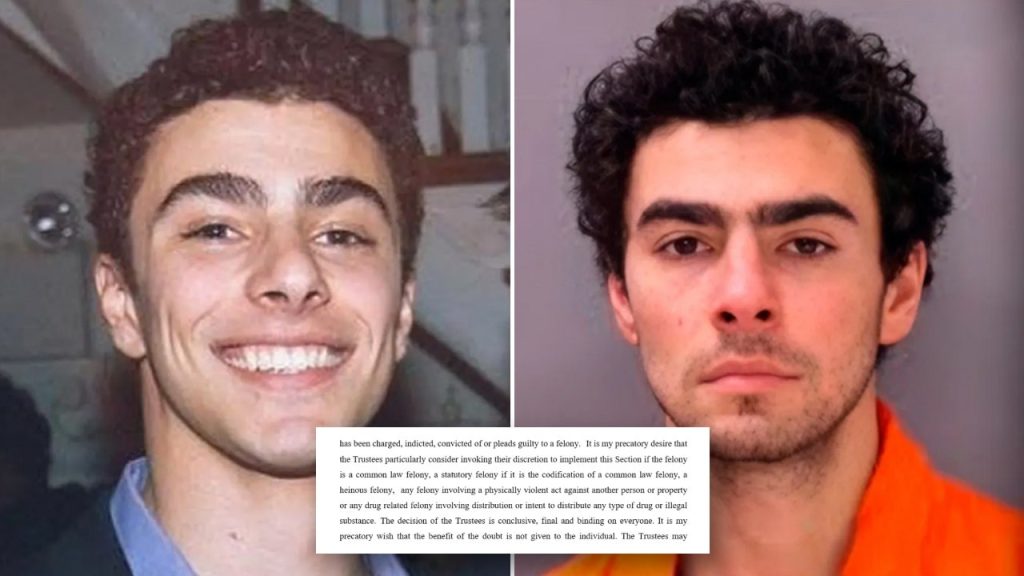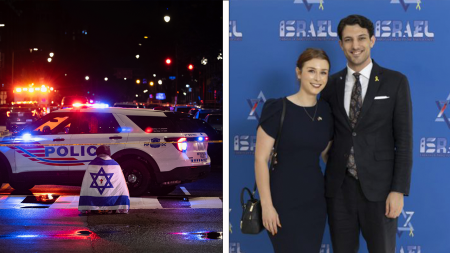The murder of UnitedHealthcare CEO Brian Thompson on December 4, 2023, sent shockwaves through the nation, further intensified by the subsequent arrest of Luigi Mangione, grandson of prominent Baltimore philanthropist Mary Mangione. Luigi’s arrest unearthed a complex narrative interwoven with family fortune, alleged anti-capitalist sentiments, and a disturbing fascination with extremist ideologies. The case has sparked widespread debate about potential motives, socioeconomic influences, and the impact of radical beliefs on individual actions.
Mary Mangione’s will, a testament to her substantial wealth accumulated through her late husband’s real estate ventures, stipulated a significant inheritance for her ten children and thirty-seven grandchildren. However, a crucial clause within the document excluded any descendant charged, indicted, convicted of, or pleading guilty to a felony. This clause, reflecting Mary Mangione’s strong moral stance, specifically highlighted heinous felonies, violent crimes, and drug offenses as grounds for disinheritance, granting the trustees of her estate considerable discretion in implementing this provision. The will underscores a clear intention to withhold financial benefits from any family member involved in serious criminal activity. Luigi Mangione’s alleged crime places his inheritance, potentially a substantial portion of the estimated $30 million estate, in jeopardy.
Luigi Mangione’s academic achievements painted a picture of a bright young man with a promising future. A valedictorian of the prestigious Gilman School in Baltimore and holder of both bachelor’s and master’s degrees in computer science from the University of Pennsylvania, he seemingly embodied success. However, beneath this facade of achievement, a darker narrative appears to have been brewing. Following the murder, authorities discovered a handwritten manifesto denouncing the health care industry, specifically mentioning UnitedHealthcare, suggesting a potential motive for the crime. Mangione’s subsequent arrest in Altoona, Pennsylvania, after a cross-state bus journey, further fueled speculation about his state of mind and the premeditated nature of the alleged crime.
The case has ignited public discourse and speculation regarding Mangione’s motives. While authorities have refrained from officially commenting on a motive, the discovered manifesto and the victim’s prominent role in the healthcare industry have led to widespread speculation about Mangione’s potential animosity towards the healthcare system, and potentially capitalism itself. This speculation is further intensified by discussions surrounding Mangione’s affluent background, raising questions about the influence of privilege and the potential for radicalization within privileged circles. The public reaction has been divided, with some expressing outrage and condemnation, while others, albeit a minority, have voiced a disturbing degree of support for Mangione’s alleged actions.
The aftermath of the murder has also brought to light a series of controversial reactions and online discussions. A University of Pennsylvania professor, Julia Alekseyeva, initially expressed praise for Mangione on social media, only to retract her statements later, acknowledging their insensitivity and inappropriateness. Similarly, former journalists Taylor Lorenz faced backlash for expressing a lack of empathy towards the deceased CEO. These incidents underscore the complex and often polarized public response to the crime, raising questions about the role of social media in amplifying extreme viewpoints and the potential for insensitive commentary in the wake of tragedy.
Furthermore, Mangione’s online activity has revealed a disturbing interest in extremist ideologies. A Goodreads profile matching Mangione’s details featured a review of the Unabomber’s manifesto, expressing admiration for its prescience and raising concerns about his potential susceptibility to radical anti-establishment philosophies. This online activity, coupled with the handwritten manifesto, provides a glimpse into Mangione’s mindset and potentially sheds light on the ideological influences that may have contributed to his alleged actions. The case continues to unfold, leaving many unanswered questions about the complex interplay of personal background, ideological motivations, and the tragic consequences of violence. As the legal proceedings progress, further investigation will be crucial in unraveling the full extent of Mangione’s motivations and providing a clearer understanding of the factors that led to this shocking crime.










